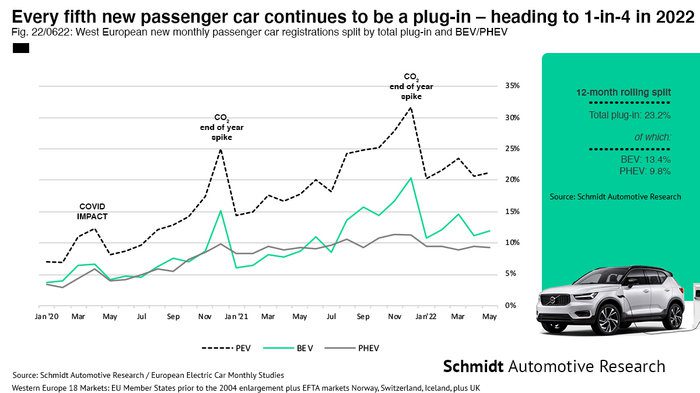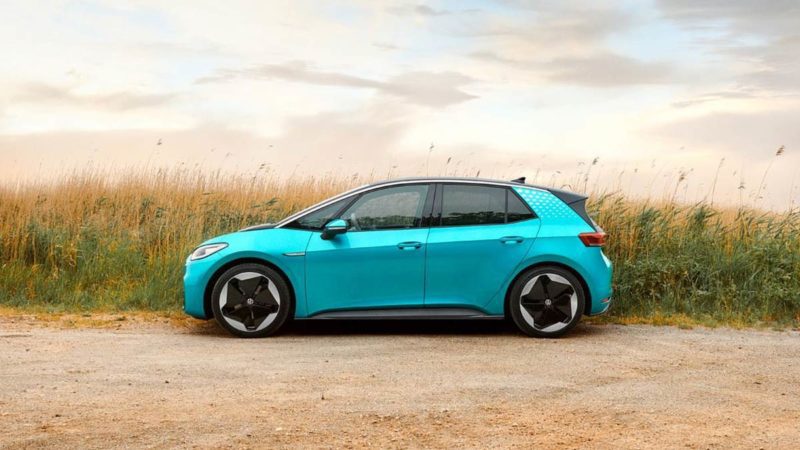For the 11th consecutive month, the registration of new plug-in electric passenger cars across Western Europe continued to account for over 20% of the total market.
The new data in from Schmidt Automotive Research means Europe is on track to finish 2022 with an EV market share above 25%, counting full battery electric vehicles (BEV) and plug-in hybrid electric vehicle (PHEV).
The total number of plug-in passenger cars registered over the first five months of 2022 reached 878,000 units, up on the 777,700 recorded during the same period in 2021 – made up of 500,000 purely-electric BEVs with the remainder PHEVs.

According to Schmidt Automotive, a “pull-forward in sales is potentially inflating the German plug-in market this year” which accounts for 28% of the total West European plug-in market, due to the fact that purchase subsidies are expected to be cut in 2023.
Expected demand for plug-in passenger cars is expected to hold strong through the remainder of 2022 thanks to a significant backlog of orders for many of the major carmakers.
Volkswagen says it has an order backlog of 300,000 BEVs for the West European region and is gearing up for a significant push during the second half of the year once the company’s Hanover and Emden plants begin to ease the pressure on orders for the ID.Buzz and ID.4.
Similarly, BMW Group is also ramping up production of its i4 in Munich while Tesla, despite a slow ramp-up at its new German factory, is expected to slowly increase production volumes for the region as OEMs again seek to meet EU CO2 fleet average emissions targets.
Joshua S. Hill is a Melbourne-based journalist who has been writing about climate change, clean technology, and electric vehicles for over 15 years. He has been reporting on electric vehicles and clean technologies for Renew Economy and The Driven since 2012. His preferred mode of transport is his feet.

